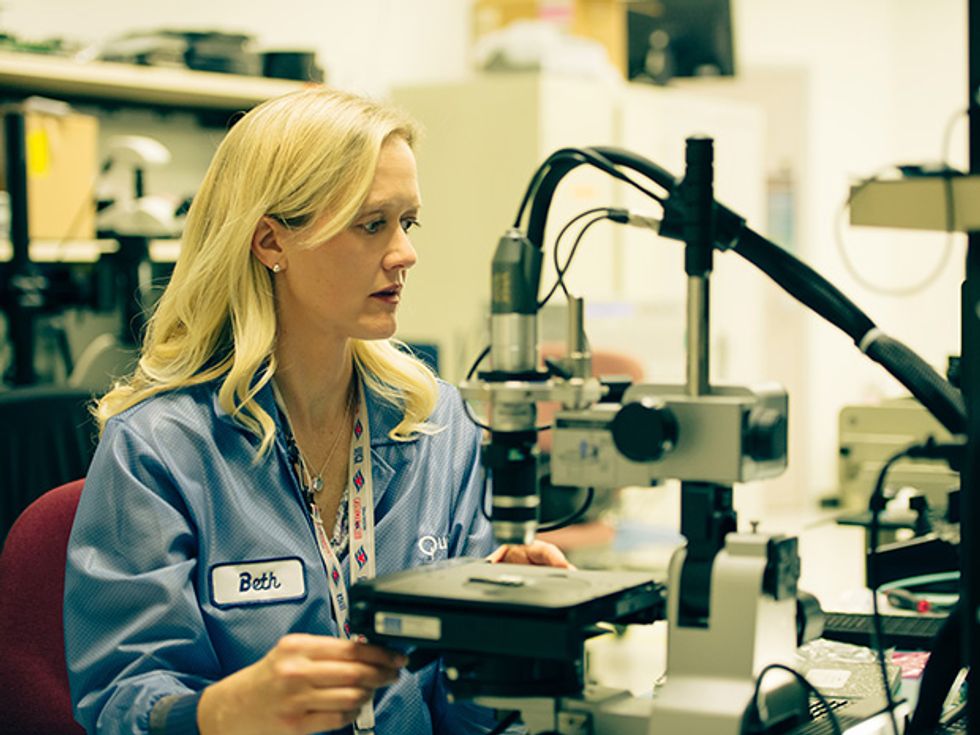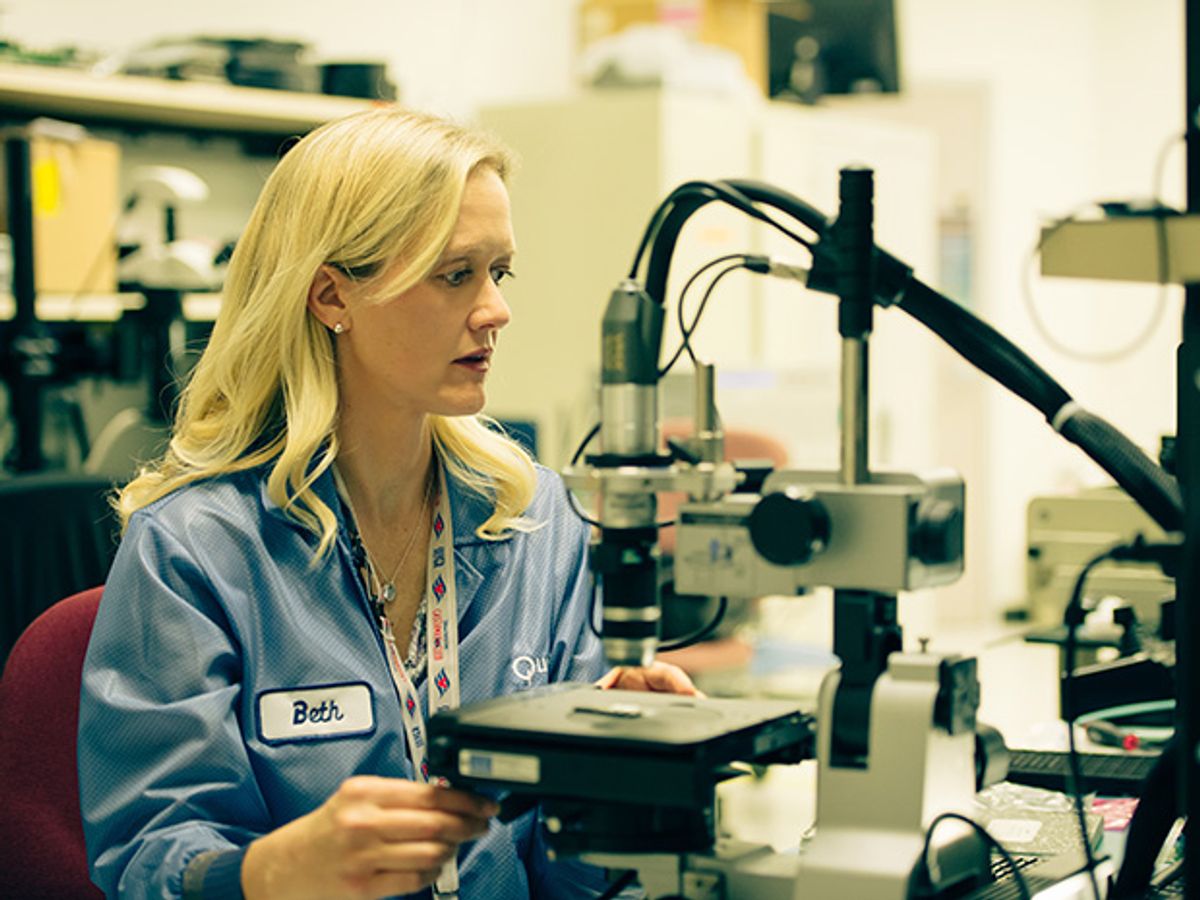
Beth Keser is an established professional, an IEEE senior member, and a principal engineer in electronic packaging for Qualcomm Technologies. But now she’s diving into a parallel career as a newbie, albeit one where she hopes to leverage her engineering chops: TV scriptwriter.
Keser made the jump when the Next MacGyver competition was announced last year. The competition was a partnership among the U.S. National Academy of Engineering, the University of Southern California Viterbi School of Engineering, the MacGyver Foundation, and Lee Zlotoff, the creator of the original hit U.S. TV show “MacGyver,” which ran from 1985 to 1992. (For those too young to remember the awesomeness of the show, it featured Richard Dean Anderson as the titular hero, improvising ad hoc ways to disarm bombs, fly a parasail, or make a gas mask, often with little more than a paper clip and a piece of duct tape.) The competition’s goal was to come up with ideas for a show featuring a female engineer with similar problem-solving skills.
Keser learned about the competition through Qualcomm’s Women in Science and Engineering group. “I just thought it was a great idea, being able to reach women and show women in engineering through entertainment. So that’s how I got interested,” she says.
The initial entry consisted of a 1,000-word synopsis of the plot and characters. Keser says she got her idea for a show from IEEE conference attendees who suggested that she become an expert witness after retiring. “I thought, ‘Wouldn’t it be great to have a female engineer who every week testifies as an expert witness, works on a different case, and finds some sort of mystery she needs to solve through engineering?’ ” Keser called her show “Rule 702,” referring to the U.S. federal regulation governing expert testimony.
Keser first won through to the finalist round in the summer of 2015, where 12 writers were chosen from 2,000 entrants to pitch their ideas to a jury of engineers and producers. She went on to become one of five winners, the only engineer among them. They received US $5,000 and were paired with producers to help develop their ideas into pilots to pitch to networks.
Coincidentally, her producing mentor is also an IEEE member—Lori McCreary, a former computer scientist who is now CEO of Revelations Entertainment, best known for the CBS show “Madam Secretary” and as the producing partner of actor Morgan Freeman.
Before landing at Qualcomm in 2009, Keser spent a dozen years in research at Motorola Semiconductor and its successor, Freescale Semiconductor. She earned a Ph.D. in materials science and engineering from the University of Illinois at Urbana-Champaign in 1997 and a bachelor’s in engineering from Cornell University in 1993.
Keser says she attacked the creative hurdles to becoming a scriptwriter in a way that was similar to how she attacked engineering problems in her career. “That’s what we do in engineering, a lot of problem solving,” says Keser. “In engineering, you look up a problem in IEEE Xplore, see what papers pop up, and learn from what’s already been published. Here, I used the Internet, rather than technical journals.” Keser read the book Story: Substance, Structure, Style and the Principles of Screenwriting by Robert McKee (HarperCollins, 1997), watched YouTube videos on pitching, and practiced by videotaping and watching herself.
After winning over the jury, Keser spent the next six months working with McCreary and Revelations vice president Tracy Mercer to develop a pilot script. Keser would get direction during weekly teleconferences, then incorporate McCreary’s and Mercer’s notes on weekends. By the end of last year, the project was ready for Revelations to pitch to CBS, where it is currently under consideration for next year.
For other engineers looking to write for TV or film, Keser suggests entering screenwriting competitions, building exposure through a blog or YouTube channel, or becoming a technical consultant in your area of expertise.
“Being an engineer is something that not a lot of people can do,” she says, “so bringing that perspective is unique in Hollywood.”
This article appears in the August 2016 print issue as “Profile: Beth Keser.”
